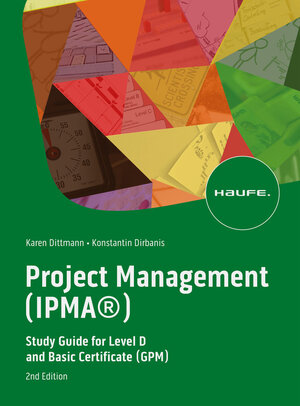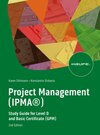Project Management (IPMA®)
Study Guide for Level D and Basic Certificate (GPM)
von Karen Dittmann und Konstantin DirbanisThe book contains the complete learning content for the IPMA® Level D Certification as well as the GPM Basic Certificate. It offers numerous examples, templates for project management methods and practical tips. It also aims to convey the joy of project management, which – when carried out professionally – is probably one of the most versatile and exciting professions imaginable.
The IPMA® (International Project Management Association) defines global standards for professional project management. The three competence areas of the current standard ICB4.0 (Individual Competence Baseline) Perspective (context), People (personal and social) and Practice (methods and technical) provide the certification framework for project managers. The competence-based approach of IPMA® enables the transfer into practice and goes beyond the pure knowledge acquisition of other certifications solely based on tools and methods. In this way, the transfer to everyday project management can be managed successfully.
Contents:
- Project context: how projects are embedded in companies, what legal regulations need to be considered, the role of organizational culture in project implementation
- People in the project: personal and social skills for project managers, how to design projects with people for people
- Methods and techniques: from requirements analysis to performance, resource, time and cost planning through to project controlling and project closure
All topics are explained for both classical (plan-based) and agile project management and how to combine these two approaches (hybrid).
New in the 2nd edition:
- Modernized German standard of the current ICB 4 (valid from 01.01.2024)
- Coverage of agile and hybrid project management
- Continuous project examples as an aid for writing the Level D report










